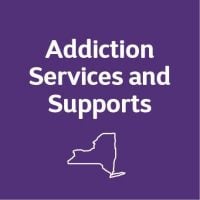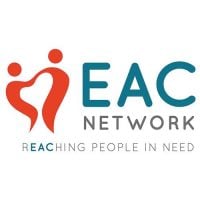
Angelo Melillo Center for Mental Health
Drug Rehab Center in Glen Cove, New York
- Mental Health
- Eating Disorder
- Dual Diagnosis
The Angelo Melillo Center for Mental Health in Glen Cove, New York offers evidence-based addiction treatment and therapy for individuals with substance abuse, mental health, and eating disorders, providing both inpatient and outpatient care, accepting most private health insurance, and tailoring programs to meet the individual needs of each patient.
About This New York Facility
Angelo Melillo Center for Mental Health is a high-quality addiction treatment facility located in Glen Cove, New York. It is conveniently located near the city and offers evidence-based treatments for those with drug and alcohol problems as well as mental health and eating disorders. The facility offers both inpatient and outpatient level care and accepts most private health insurance. It is overseen by a highly experienced and supportive staff, and programs are tailored to the individual needs of the patient.
Angelo Melillo Center for Mental Health provides a range of evidence-based therapies for dual diagnosis, mental health, and substance abuse issues. Treatment modalities offered at the facility are individual counseling, group therapy, family therapy, cognitive-behavioral therapy, and 12-Step program integration. The center is accredited by the Joint Commission and licensed by the New York State Office of Addiction Services & Supports (OASAS). It also has a specialized team of professionals with expertise in mental health, substance abuse, and eating disorder treatment. The center is committed to providing the highest quality of care and a supportive environment for its patients.
Genders
Ages
Modality
Additional
Conditions and Issues Treated
Substance use disorder falls under two categories: Alcohol or Drug Abuse and Drug Dependence. An individual suffering from a substance use disorder and mental health disorders is said to have a co-occurring disorder or a dual disorder.
Individuals with substance use disorders and mental health problems are said to suffer from a ‘dual diagnosis’. The most frequently identified mental health issues found in individuals with substance use disorders include anxiety, depression, schizophrenia, and schizoaffective disorder.
Levels of Care Offered at Angelo Melillo Center for Mental Health
This center offers a variety of custom treatment tailored to individual recovery. Currently available are Dual-Diagnosis, Outpatient, with additional therapies available as listed below.
When remaining at their job in Glen Cove, or continuing their studies, the individual may live with their family while utilizing Angelo Melillo Center for Mental Health‘s outpatient services. Treatment requires counseling the patient at the individual level, in a group setting, about substance addiction, drugs, and therapy sessions.
Therapies & Programs
Couples therapy aims to rebuild the trust between the partners. Partner’s involvement in the process will result in greater chances of treatment success. Couples therapy addresses financial issues, loss of trust, lack of intimacy, and physical abuse.
Family therapy is a set of therapeutic approaches that assumes that the entire family is a system. It utilizes the strengths and resources of the family to help the patient refrain from resorting to substance abuse. The impact of substance abuse is not just on the patient but on the entire family. Family therapy ensures that the patient gets adequate support from the family members after the treatment making the recovery process sustainable
- Family therapy guides all the members of the family to help the patient.
- It helps to repair relationships and improve communication between family members.
- It helps to keep the patient engaged and motivated throughout the treatment.
Group therapy is an important tool in recovery. Finding a peer group in Glen Cove, NY and others who relate to your situation is a fundamental tool for recovery at Angelo Melillo Center for Mental Health. Addiction tends to lead to isolation and feelings of uniqueness. The accountability and friendship that is found in group therapy can be more effective than any single other treatment approach. This is generally introduced early in recovery and is recommended as a lifetime treatment habit.
Trauma therapy is a way of addressing trauma while in a safe situation in order to heal. This may involve Angelo Melillo Center for Mental Health managing individual or group counseling or both. Other forms of therapy have been proven to assist in healing past traumas.
A type of cognitive-behavioral therapy is Dialectical Behavioral Therapy. It is intended for those who are vulnerable to self-harm and suicidal thoughts. Angelo Melillo Center for Mental Health aims to help patients understand the connection between their feelings, emotions, and behaviors and provide them with the tools to make a difference in Glen Cove, NY. For those whose addictions and habits originate from severe mental health problems, it is beneficial.
Negative feelings are common in substance abuse disorders. If not recognized, they can cause co-occurring disorders. CBT involves strategies that help to change the thinking and behavioral pattern. It can be administered as a monotherapy as well as a part of combination therapy.
Nutrition therapy, also called medical nutrition therapy (MNT), addresses the unique needs of the recovering person’s diet. Due to addiction’s devastating toll on a person’s physical health, healthy eating must be addressed as soon as therapy starts. A good diet helps boosts a recovering person’s ability to fully participate in Angelo Melillo Center for Mental Health therapy.
Nicotine replacement therapy (NRT) is a treatment that helps people to quit smoking. In nicotine replacement therapy, a controlled amount of nicotine is provided in the form of gums, patches, or sprays. They do not contain the harmful chemicals usually found in tobacco products. NRT reduces the withdrawal symptoms by giving nicotine in low doses. However, NRT provides relief only from the physical withdrawal symptoms. The emotional and psychological aspects of quitting needs to be treated separately. While NRT is safe for most adults, teens and pregnant women should not undergo NRT. Research shows that the use of NRT doubles the chances of quitting smoking.
Patient Experience
Experiential Therapy at Angelo Melillo Center for Mental Health
Experiential therapy works by using tools and activities to recreate past experiences. Role-playing, arts and crafts, music, animal care, rock climbing, etc. are some of the activities used in this therapy. It is different from medication and talk therapy and suits those who have difficulty expressing themselves.
Payment Options Accepted
For specific insurance or payment methods please contact us.
Is your insurance accepted?
Ask an expert, call (888) 674-0062
Angelo Melillo Center for Mental Health Associated Centers
Discover treatment facilities under the same provider.
Learn More About Angelo Melillo Center for Mental Health Centers
Additional Details
Specifics, location, and helpful extra information.
Glen Cove, New York 11542 Phone Number(516) 676-2388 Meta DetailsUpdated November 25, 2023
Staff Verified
Patient Reviews
There are no reviews yet. Be the first one to write one.
Glen Cove, New York Addiction Information
More than 2 million New Yorkers are currently suffering from some type of substance abuse and many of those are minors. Alcohol abuse, in particular, is prevalent among those underage. As a result of the high prices and regulation of prescription drugs, many New Yorkers turn to heroin instead. This has led to a serious heroin epidemic in the state.
Treatment in Nearby Cities
- Glens Falls, NY (169.6 mi.)
- Canandaigua, NY (234.5 mi.)
- Warsaw, NY (265.9 mi.)
- Montrose, NY (31.4 mi.)
- Orchard Park, NY (294.6 mi.)
Centers near Angelo Melillo Center for Mental Health
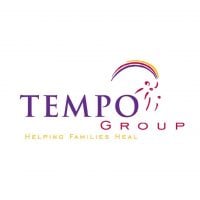
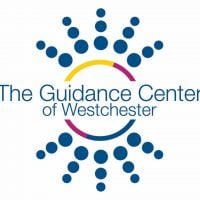
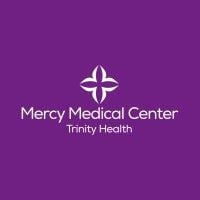
The facility name, logo and brand are the property and registered trademarks of Angelo Melillo Center for Mental Health, and are being used for identification and informational purposes only. Use of these names, logos and brands shall not imply endorsement. RehabNow.org is not affiliated with or sponsored by Angelo Melillo Center for Mental Health.

